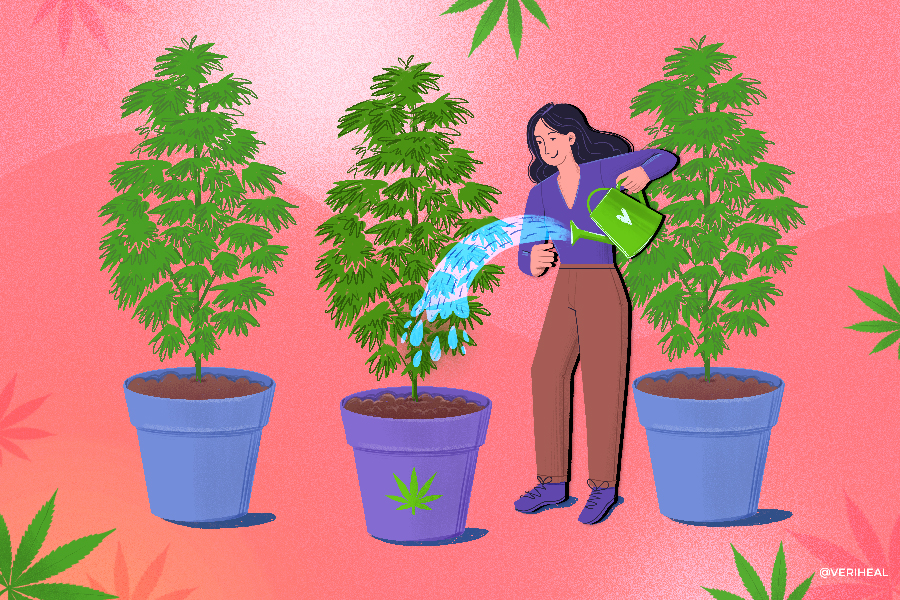The legal cannabis industry in the United States has slowly expanded over the last decade. Despite the federal illegality of cannabis, lawmakers and state representatives have implemented successful medical and recreational cannabis programs across the nation. With legalization, patients and consumers have more freedom in product choice, and many are turning to homegrown cannabis.
Cultivation Costs for Homegrowers
As of July 2022, 38 states in America have legalized medical cannabis, and 19 states and the District of Columbia have established recreational cannabis programs. Due to the increasing number of legal cannabis programs throughout the states, more people than ever before are testing out their green thumb and opting to grow their own cannabis at home.
Whether you grow cannabis at home or have considered growing cannabis at home, then you probably know that the initial setup costs can be pricey. You can grow outdoors in the ground directly for a fairly low overhead cost. However, this may limit your yield considerably, since, in many places, you only get one grow season.
Indoor cannabis cultivation allows an average of four harvests each year instead of one. However, indoor cultivation is generally more expensive. Grow rooms require ventilation, lights, environmental controls, and other optimal environmental conditions in order for cannabis plants to thrive. Grow tents could be a more affordable alternative to a dedicated grow room, but a small grow tent can still cost upwards of $400.
Homegrown Cannabis Statistics: Supplies, Growers and Products
Research from New Frontier Data estimates that around 3 million people grow their own cannabis at home in the United States. Those three million home growers are expected to cultivate approximately 11 million pounds of dried cannabis in 2022.
That is 4,928,000,000 grams of homegrown cannabis being cultivated by Americans. The research conducted by New Frontier Data went on to show that 65% of those who grow cannabis at home were in a relationship or married, and 46% had children under the age of 18.
This data suggests that many adults are finding ways to grow cannabis at home in a safe and responsible manner regardless of familial obligations. It also may reflect American’s growing acceptance of cannabis, and the shift in attitude toward the plant.
Why You Should Get Your Medical Marijuana Card
Veriheal has satisfied millions of patients nationwide by giving them access to these benefits
- Larger purchase limits
- Peace of mind
- Enhanced legal protection
- Access to higher potency strains
- Save up to 25% on cannabis purchases
- Skip the line at the dispensary
The legal market for at-home cannabis cultivation supplies offers some insight into this shift in attitude. According the market researcher’s projection, the industry is expected to achieve a value of $4 billion by 2030.
Why Are People Growing Cannabis at Home?
Many people choose to grow at home because they save money and get better quality cannabis. Unfortunately, just because cannabis is sold in a dispensary does not mean it is good quality. The industry is inundated with substandard weed.
Too many growers push their product out too fast, and do not give it the right amount of time to mature or cure properly. Some industrial cultivators cut corners by using potentially dangerous additives or other substandard practices to increase their profit margins.
Often, consumers start growing cannabis at home due to a lack of available options in dispensaries. Nowadays, you can’t be sure you’re getting what you pay for. A strain’s name doesn’t mean what it used to. With a home grow a consumer can control everything that goes into the final product. It also may be more convenient to grow cannabis at home if a consumer lives in a rural area or in a state that only has a limited number of accessible dispensaries.
Americans Opt for Increased Quality Control and More Power to Choose
Homegrown cannabis gives all the power to the consumer. The home grower is able to pick the genetics, choose to use pesticides or not, and have full knowledge of all the plant nutrients and soil used during the cultivation process. The home grow cannabis supply industry is starting to achieve numbers in the billions, and it may be due to the desire of many cannabis consumers to have greater control over product quality.
Consumers are getting fed up with only having access to the same limited set of genetics in the dispensary. The CEO of New Frontier Data, Gary Allan, pointed out a very important change that could drastically alter growing cannabis at home, making it an even bigger hit than it already is. The change he pointed out was in how the DEA treats marijuana seeds.
“The DEA’s recent decision to treat marijuana seeds as hemp could open up the market for National cannabis seed distribution in a substantial way. This significant policy shift could also increase the breadth of genetics available to home growers, making it possible to produce strains that are not commercial available.”
There are many benefits of growing cannabis at home including quality control, potential financial savings, increased choice, and the fact that growing can be therapeutic. Americans increasingly recognize these benefits, and when presented with the choice opt to grow their own cannabis at home. New Frontier Data predicts that Americans will grow an estimated 15 million pounds of dried cannabis at home by 2030. Will you be one of them?
Author, Share & Comments















